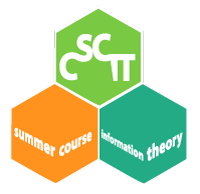Prof. Lara Dolecek
Department of Electrical and Computer Engineering, University of California at Los Angeles, USA
Topic: Foundations of Finite-Length Graph-based Codes with Applications to Data Storage, Quantum Communications, and Blockchains
Abstract:
In this series of lectures, we will lay the foundations of modern finite-length graph-based codes, and demonstrate their use in exciting new applications including ultra-dense data storage, blockchain systems, and quantum communications. While channel coding has been an indispensable component of all data communication and storage systems, emerging technologies now impose requirements that go beyond the basic requirement of reliable transmission over canonical channels. We will discuss the underlying basic principles of high-performance graph-based codes in the finite-length regime, as this regime is of primary interest in practice. We will introduce relevant combinatorial objects that govern the performance of a graph code in this practical regime, and demonstrate the utility of linear-algebraic and combinatorial methods that are used in the analysis and design of practical graph codes.
We will then take an in-depth look at three representative applications: ultra-dense data storage, blockchain systems, and quantum communications, and discuss how the foundational code design principles can be successfully used in each of these domains. We will argue that each of these exciting applications requires a specific mathematical abstraction, thus leading to many possible innovations in code design. First, ultra-dense data storage is characterized by carefully designed channels with memory, thus necessitating a more refined analysis of codes than what is typically done for memoryless, Gaussian channels. We will present recent code designs that offer excellent performance in this setting, and are being deployed in practice. Second, blockchain systems are an exemplar of a decentralized adversarial network in which certain nodes are limited in the amount of information they can access. An adversary can execute a so-called data availability attack on these nodes. We will describe how known channel codes perform in this setting, which will in turn motivate new code design principles that are not only appropriate for such channels, but that in a surprising way depart from folk wisdom. Lastly, we will describe the problem of quantum key distribution (QKD) and demonstrate how carefully designed graph codes can have important benefits in this domain. QKD is essential to modern quantum communications, and emerging systems require QKD to be performed over multi-dimensional entangled photons and in a very noisy regime. In this nascent technology, graph codes are used as source codes, and given the unique aspects of combined reconciliation and privacy, careful code designs can offer substantial benefits over the traditional approaches.
No prior knowledge on the studied domains will be required. Lectures will culminate with a list of possible research topics for interested audience.
Bio:
Lara Dolecek is a Full Professor with the Electrical and Computer Engineering Department and Mathematics Department (courtesy) at the University of California, Los Angeles (UCLA). She holds a B.S. (with honors), M.S. and Ph.D. degrees in Electrical Engineering and Computer Sciences, as well as an M.A. degree in Statistics, all from the University of California, Berkeley. She received the 2007 David J. Sakrison Memorial Prize for the most outstanding doctoral research in the Department of Electrical Engineering and Computer Sciences at UC Berkeley. Prior to joining UCLA, she was a postdoctoral researcher with the Laboratory for Information and Decision Systems at the Massachusetts Institute of Technology.
She received the IBM Faculty Award (2014), the Northrop Grumman Excellence in Teaching Award (2013), the Intel Early Career Faculty Award (2013), the University of California Faculty Development Award (2013), the Okawa Research Grant (2013), the NSF CAREER Award (2012), and the Hellman Fellowship Award (2011). With her research group and collaborators, she received numerous best paper awards. Her research interests span coding and information theory, graphical models, statistical methods, and algorithms, with applications to emerging systems for data storage and computing. She currently serves as an Associate Editor for IEEE Transactions on Information Theory and previously served as a Secretary of the IEEE Information Theory Society. Prof. Dolecek is a 2021–2023 Distinguished Lecturer of the IEEE Information Theory Society. Prof. Dolecek has served as a consultant for a number of companies specializing in data communications and storage.


